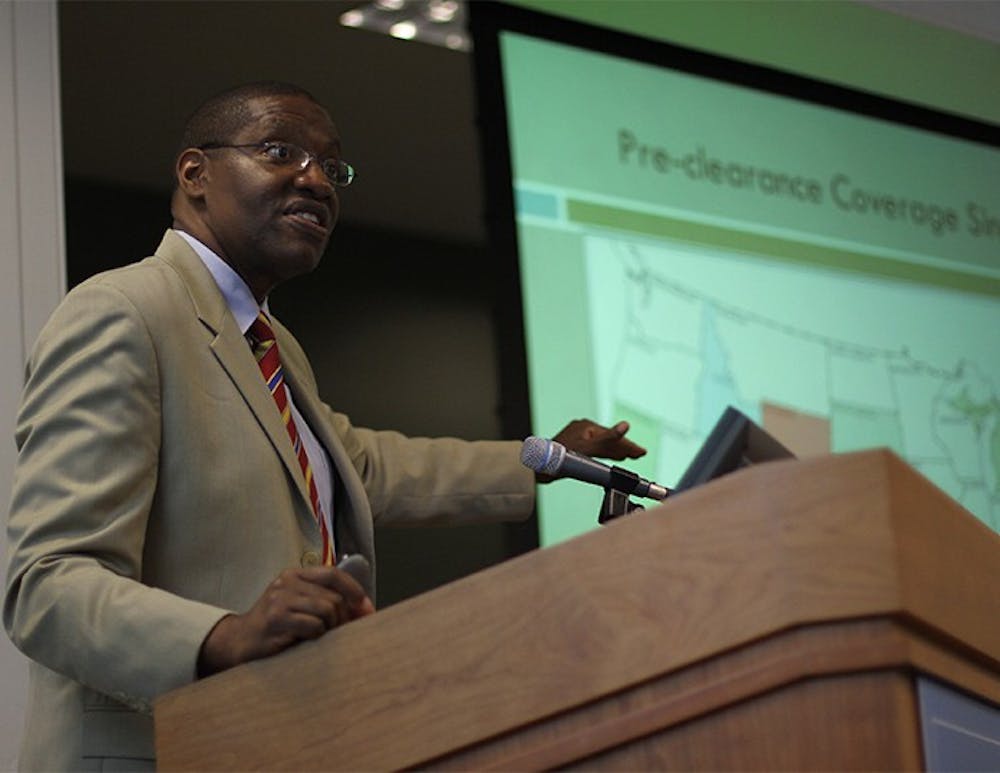Recent decisions made by the N.C. General Assembly have prompted discussions and debates across the state — discussions that are also resonating on campus.
A panel of professors met in Wilson Library Thursday night to discuss the recent Moral Monday protests going on at the legislature in Raleigh and elsewhere. The event was hosted by the UNC Institute of African American Research, part of the institute’s fall lecture series.
Panelist and sociology professor Kenneth Andrewsh said there are several parallels between the Moral Monday protests against the GOP-led state legislature and the protests during the 1960s civil rights movement. Andrews said it is rare for demonstrations to feature crowds by the hundreds on a regular basis.
“Most protests are small, they’re fleeting, and it registers no public response whatsoever,” he said.
Andrews said protests like Moral Monday are fueled by a large network of people and organizations, such as the NAACP, and citizens who are willing to get arrested when participating in civil disobedience.
“It takes a lot of organizing, it takes a lot of convergence of key factors,” he said.
Andrews said in order to be effective, the movement must sustain itself during the 2014 election cycle, when many conservative legislators will be up for re-election.“A very significant challenge to the movement is to keep it around for the long haul,” he said. He said ultimately he thinks legislators will be more responsive in the short term to members of the Tea Party than to their constituents.“A very significant challenge to the movement is to keep it around for the long haul,” he said.
The panel also discussed the recent decision by the U.S. Supreme Court to repeal Section 4search section of the Voting Rights Act, which mandated that certain states needed to receive clearance from the federal government before making changes to election laws.
The decision comes in conjunction with a new state law that will require voters to show government-issued IDs at the polls in order to vote.



